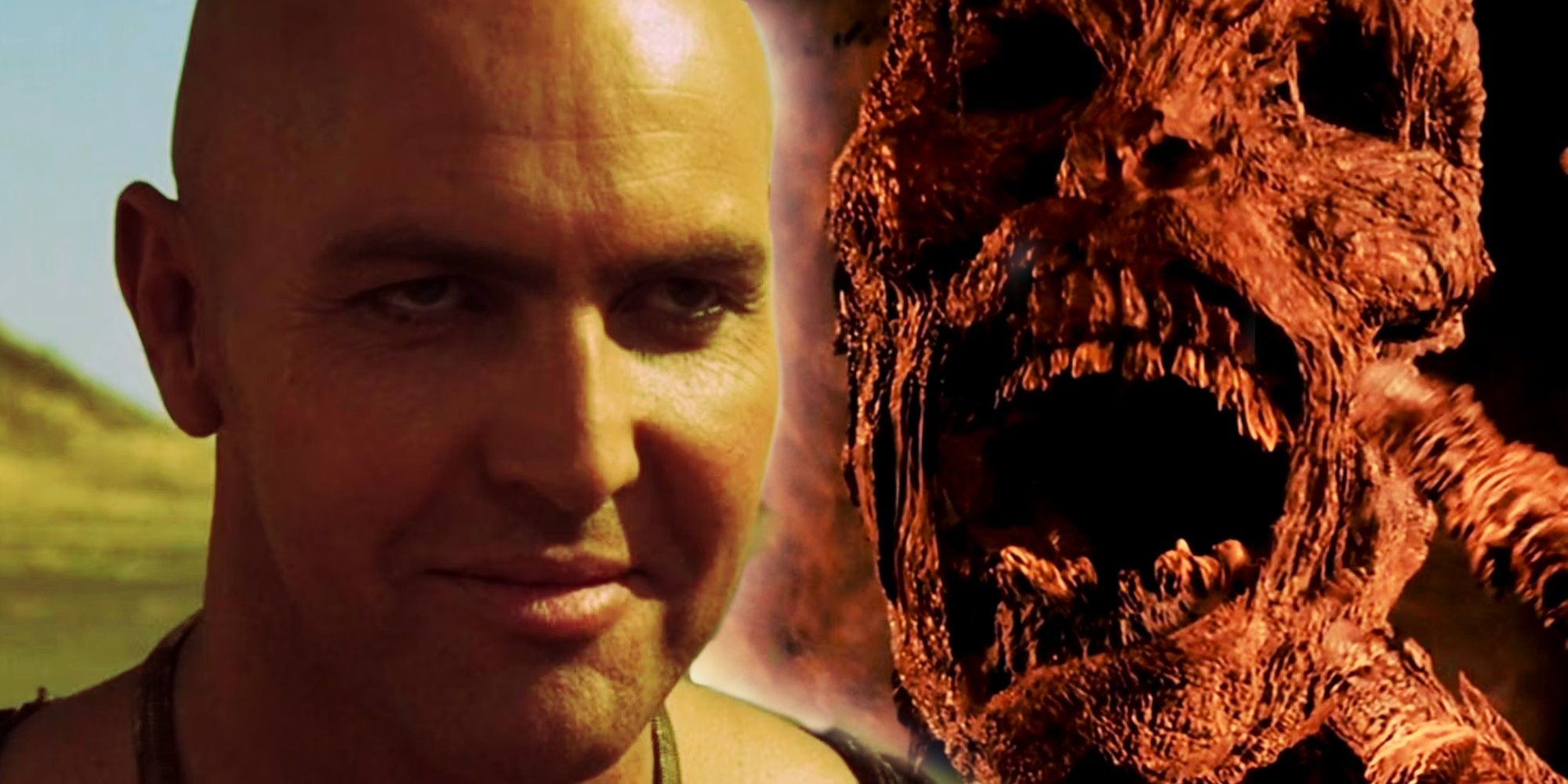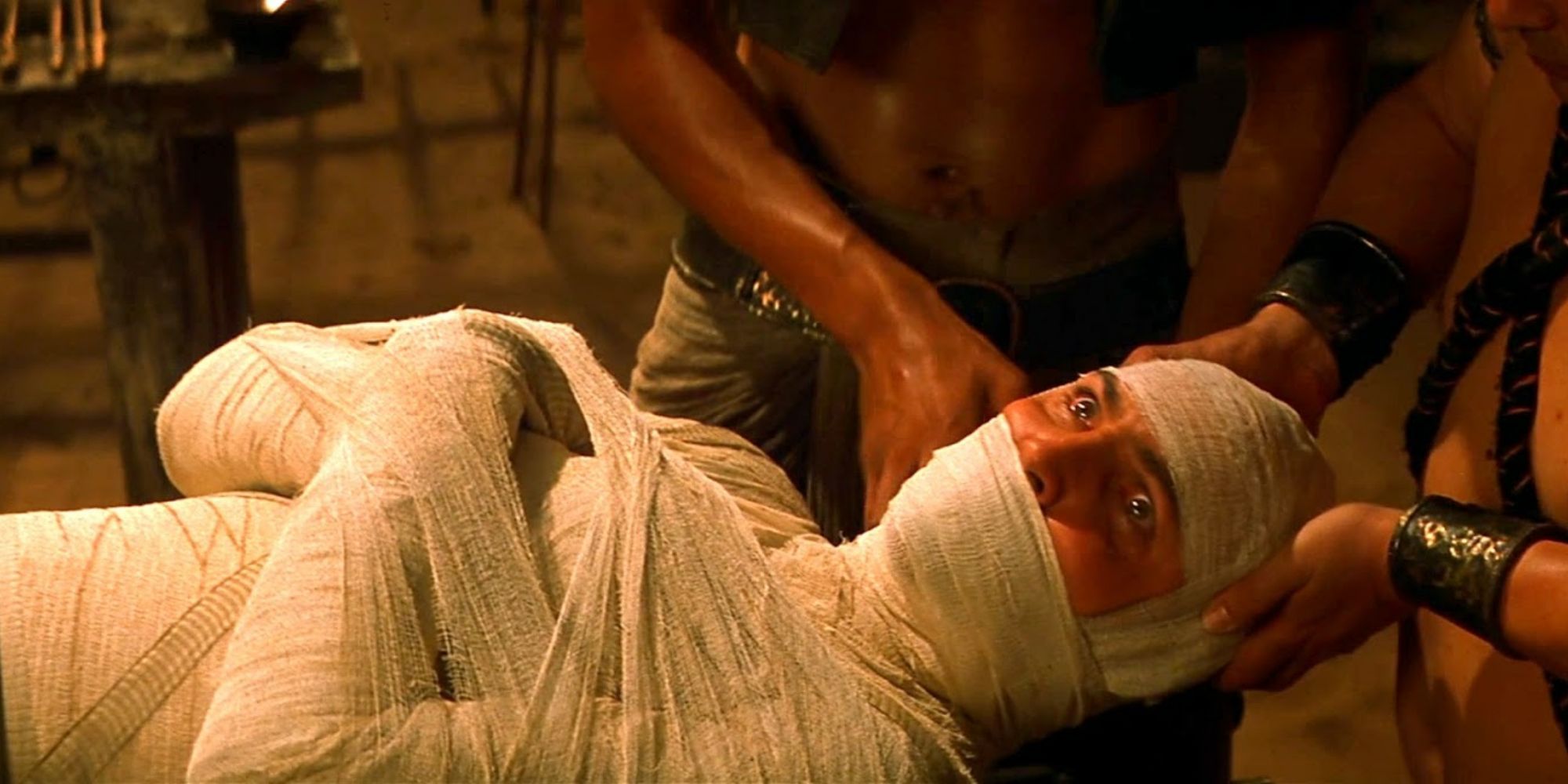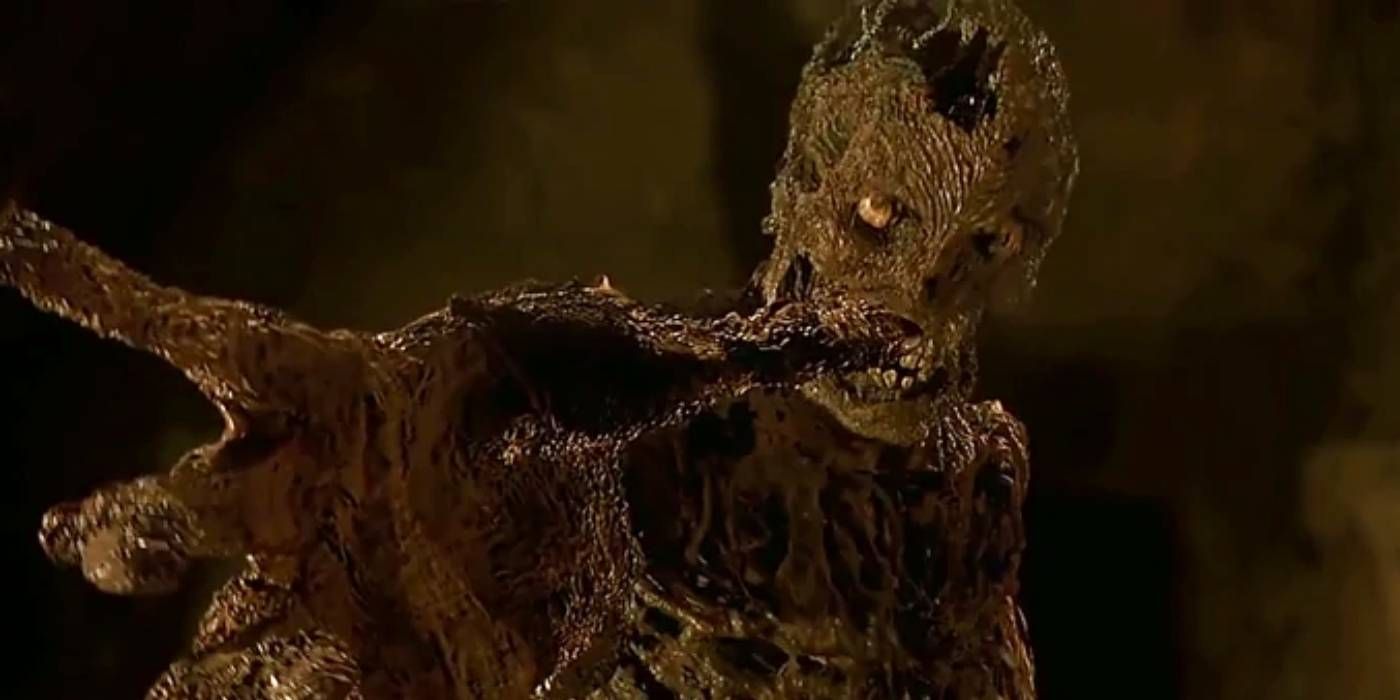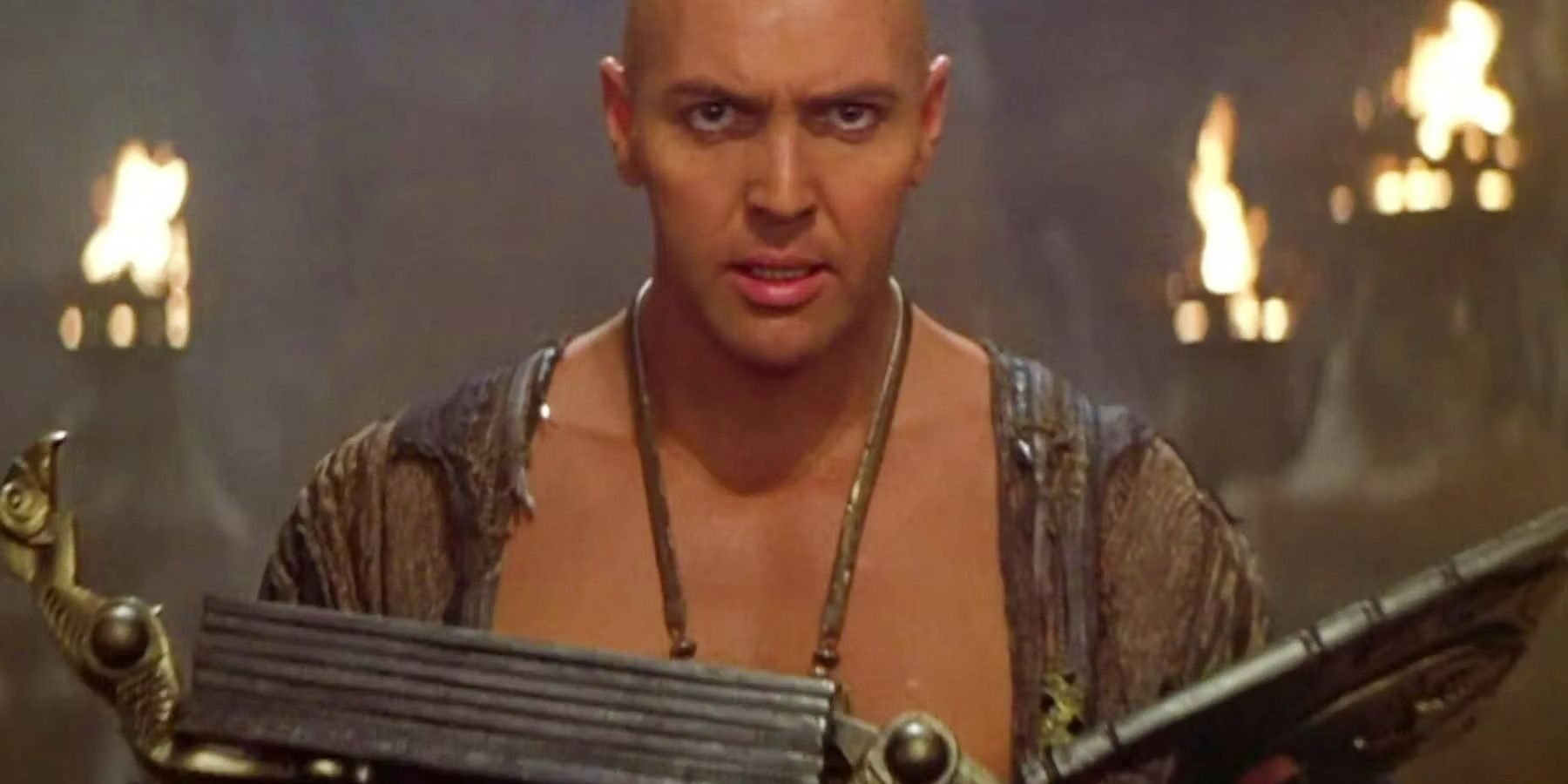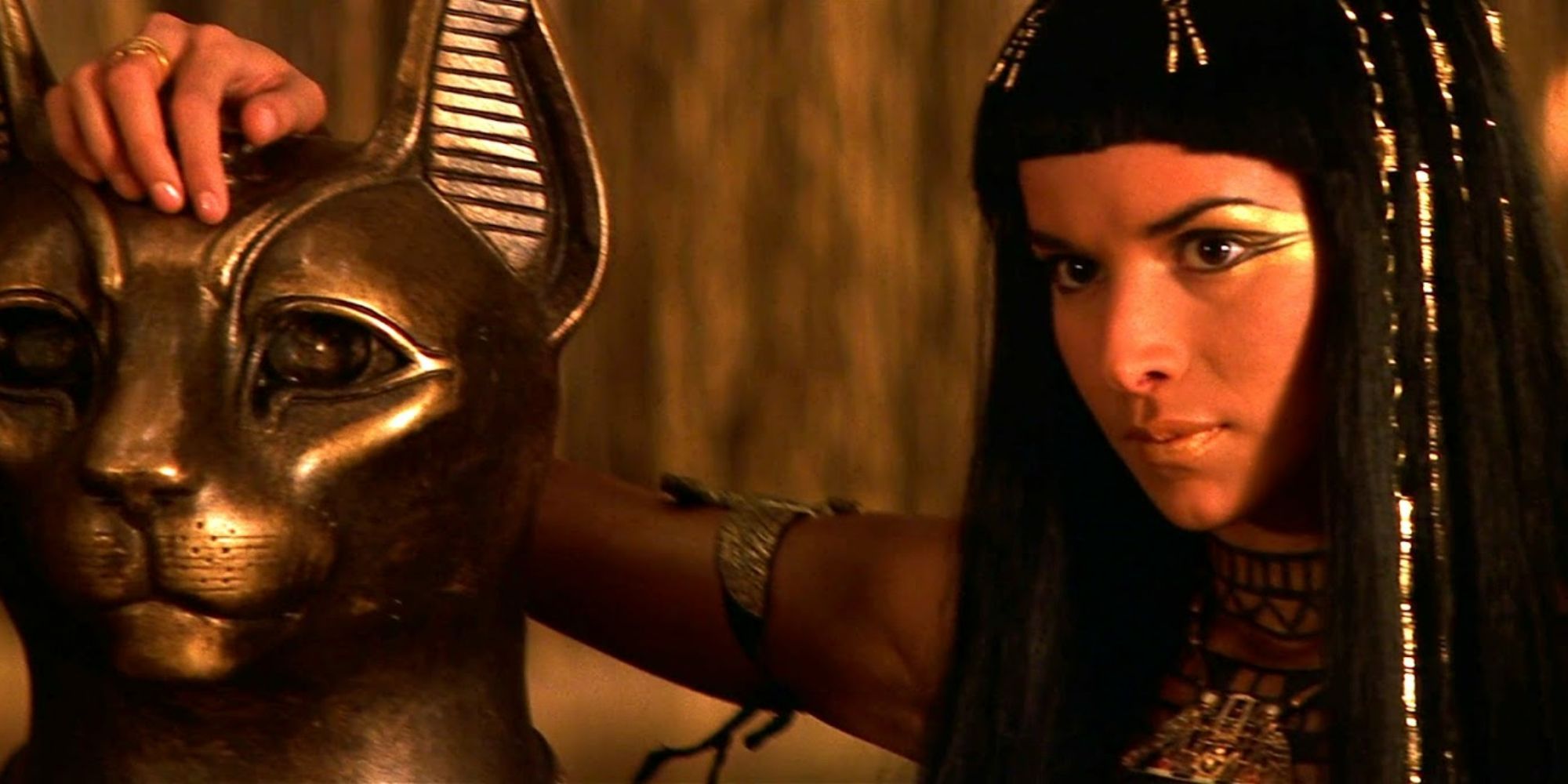In The Mummy, the priest Imhotep was cursed with the Hom-Dai, but the events of the movie proved that this may have ultimately done more harm than good. For thousands of years after the curse was enacted, the Medjai stood guard over Imhotep's tomb, fearing that someone may uncover the disgraced priest's body and begin the journey to immortality seen in The Mummy. The fact that this was a problem poses the question: why did they use the Hom-Dai curse to begin with?
Before being cursed in The Mummy, Imhotep had been the Pharaoh's high priest. However, he had secretly been having a romantic affair with his King's imperial concubine, Anck-Su-Namun. When they were found out, Imhotep and his love murdered the Pharaoh, and Anck-Su-Namun killed herself to escape future punishment. Devastated, Imhotep fled to Hamunaptra, where he tried to use the Book of the Dead to resurrect The Mummy's Anck-Su-Namun. Before he could complete the ritual, however, Pharaoh's men stopped him. In punishment for using the Book of the Dead for this purpose, they cursed him— but it may have been to his benefit.
The Hom-Dai Dooms Its Victims To Be Neither Dead Nor Alive
The process of the Hom-Dai curse was brutal and disturbing, but long-term, it only seemed to be to Imhotep's benefit in The Mummy. The priest's tongue and other organs were removed, and he was buried alive with a generous number of scarab beetles to slowly eat his flesh. This process (and likely a number of other rituals not shown on screen) caused the victim of The Mummy's Hom-Dai curse to become a member of the undead for all eternity. Therefore, his soul would never be able to carry on to any Egyptian afterlife. Instead, he would rot in his grave, neither dead nor alive.
As a disgraced priest who tried tampering with life and death, it makes sense that Imhotep's crimes would be punished with something to do with the afterlife, but it wasn't a very lasting penalty. In The Mummy, Evelyn explains that the Hom-Dai was the worst of all Egyptian curses but was greatly feared because it also equipped its victims with great potential for power. If Imhotep's body was found, a passage read from the Book of the Dead, and the Canopic jars claimed, then the Mummy would have a chance at immortality.
The Curse In The Mummy Risked The Victim Coming Back To Life
When The Mummy's Imhotep was buried, a chest containing canopic jars was concealed nearby. For a Hom-Dai victim to rise from their grave, these jars had to be found and claimed, and a passage from the Book of the Dead must be read allowed. Conveniently for Imhotep, the Book was hidden in the same chest that concealed the canopic jars. So when the American explorers uncovered it in The Mummy, Imhotep's way was set. Evelyn read the passage from the Book of the Dead, and the newly risen Mummy needed only to gather the body parts of those who possessed the jars to achieve power and immortality.
Of course, turning an already dangerous person into an immortal being of terrible power seems much too high a cost to risk using the Hom-Dai curse. To make matters worse, the cursed individual would be so powerful that the 10 Plagues of Egypt would follow him, as seen in the 1999 The Mummy film. The Book of Amun-Ra had a passage that could remove the being's immorality, but unlike the Book of the Dead, it was not conveniently placed with the other items. It was no wonder the Hom-Dai curse was avoided for so long, and it seems it should have stayed that way.
Imhotep Was The Only Person Cursed With Hom-Dai In The Mummy
The ancient Egyptians so greatly feared the Hom-Dai in The Mummy that it had never been used until Imhotep's sentence. Evelyn explained that the power of the cursed victim was so great that it was avoided entirely for centuries. This made sense since using the Hom-Dai curse on too many people could result in an immortal, undead army uprising. However, this logical caution was thrown out the window when Imhotep committed his crimes. So what was so special about him that made his punishment worth risking the entire world?
The priest was a corrupt man, and his murder of the Pharaoh Seti I in The Mummy was inexcusable. However, this action wasn't even what qualified him for the Hom-Dai. By trying to resurrect his lover, Imhotep broke sacred rules regarding life and death, and as a priest, he surely knew better. Regardless, given all the possible crimes people could commit (including Imhotep himself), trying to bring back a dead loved one seems pretty tame– and even sympathetic. Surely, several other, less risky, means of punishment would have been more appropriate.
The Hom-Dai Separated Imhotep From Anck-Su-Namun Even In Death
It could be that the Pharaoh's guards had a central goal in mind when they punished Imhotep with the Hom-Dai. By making the priest a member of the undead and forbidding him to carry on to the afterlife, Imhotep would never be reunited with Anck-Su-Namun. Since attempting to bring her back from the dead was such a severe crime in The Mummy's timeline, and their union was undoubtedly seen as cursed, it might have made sense to keep them from ever finding each other again.
Still, by enacting the Hom-Dai, Pharaoh's guards made it more likely for Imhotep's great crime to be repeated. If the priest had simply been executed, there would have been no way for him to try his ritual using the Book of the Dead again. However, thanks to the Hom-Dai, Imhotep performed his blasphemy several times. This, in addition to The Mummy's countless murders, makes it seem as if everyone would have been better off if he had never been cursed— but then there would be no story.

